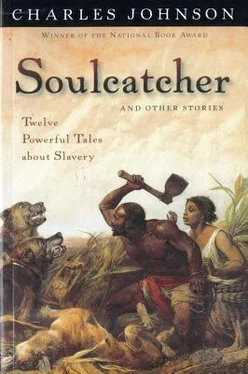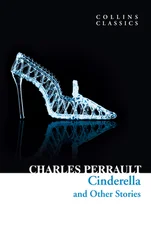I am afraid to be alone in any room in my house with Billy Lee, given the way I sometimes catch him looking at me out of the corner of his eye. My Lord, I am afraid to eat, for anything they serve me might be poisoned. It chills me to hear the footsteps of any of our servants behind me when I am on the stairs, or outside my bedroom door at night. Oh, George, you were not a thinker. Had you been, you would not out of Christian kindness to the blacks unwittingly consigned me to a hellish house, where in the face of each of our formerly loving attendants I now see my possible executioner.
How many days, or weeks, I have lived in this agony, I do not know. How long I have to live after my dear husband's departure is also a mystery. But I awoke this morning with a clear resolve. I bade one of the black children to have our coachman ready the carriage to take me in a few moments to Fairfax County court There, I will sign the papers necessary to release from servitude all of George's Negroes. They must be manumitted now. This very afternoon.
Then, and only then, will they and I be free of the errors of George Washington.
JULY 5,1793
FRIDAY, 8:30 P.M.
I have kept this journal for a few months now, initially to document for posterity the early work I am doing to open — soon, I hope — the doors of a church I will call Bethel, hut as we now enter the second (or perhaps it is the third) month of deaths due to the yellow fever, I wonder if it might be more appropriate to title these pages The Plague Journal .
Death is all around us, like a biblical parable on (white) vanity. Should I make that the subject of my five o'clock sermon tomorrow morning? I wonder how it might be received? Perhaps well, insofar as my congregation is entirely Cainite — so white men call us — the colored outcasts violently driven from St. George's, one of Philadelphia's largest Methodist churches just last year. I know in the eyes of God, the behavior of this city's Abelites was scandalous. We, free men and women, came humbly to their church to pray to the Creator. Rev. Absalom Jones and I were a little late. Without causing any noise or commotion whatsoever, we quickly went up the stairs of St. George to the newly built gallery, which was just above the seats we'd occupied the week before. The strains of the first hymn were ending as we sat down, then the church elder told all those present to pray. Obediently, we got down on our knees. But hardly was I a minute into silent meditation when at my right I heard Absalom make a sound. Opening my eyes, I saw one of St. George's trustees hauling my companion to his feet, telling him Negroes were never, never, never to sit in this section of the gallery. Naturally, my friends and I left, turning our backs on all of Philadelphia's white churches. One Sabbath after the next we were subjected to humiliations it pains me to remember. Good Christians, for example, who refused to take the sacrament if it meant sipping from the same chalice that had touched the lips of their darker brethren. Oh yes, Absalom was compelled to organize St. Thomas Episcopal Church after that sad incident, and I dream of a ground-breaking ceremony someday at Bethel, that we might better separate ourselves from those who reject us, and all of this simply that we can worship our common Father in the spirit He intended. now, ironically, He has visited upon this city's whites a plague of medieval proportions. It is a swift disease. It can kill in a single day. Week by week, the death toll mounts. Frightened whites flee this capital city of Philadelphia by the thousands, abandoning their families and friends. Those who remain are helpless in the grip of this growing malignancy, for the country's government is paralyzed. The crisis is unparalleled in this country's history. But word has spread that Negroes are immune to the disease, which is not true, of course. Nonetheless, the Abelites believe we are protected, and so Dr. Benjamin Rush, knowing of the leadership position I occupy through God's grace among my own people, has appealed to me to plead with them to assist the city's remaining civic leaders in combating the curse that is laying them low.
I prayed — and prayed — on his proposal. And in the midst of my appeal to the Most High for guidance, I remembered the injunction, "Bear ye one another's burdens, and so fulfill the law of Christ" (Galatians 6:2). This crisis, the Lord let me see, is possibly our invitation as a people back from our exile east of Eden. If we help the Abelites in their hour of need, mightn't they be thankful to the Negroes of Philadelphia? Wouldn't their hatred be replaced by gratitude? Such has been my hope since I enlisted my people in the dangerous work of saving others who have long despised them.
JULY 21, 1793
SUNDAY, 6 P.M.
Preached four sermons today in the Commons, in Southwark, and Northern Liberties, and as always after such a day I feel a bit emotionally drained, yet also exhilarated, so I know it will be difficult to fall asleep at my usual hour of 9 P.M. But do I preach? It seems more fitting to say that when I stand before my people, the Book in my left hand, the words come flooding out of me, as if I were merely a conduit, an anonymous instrument through which the music of our Lord and Savior bursts forth. Afterwards, it's true, I cannot recall everything I said, though the laity always seem pleased and tell me that I am good. No, I've told them time again, not I but the Father within me doeth the works, and I ask them to read Matthew 19:17.
However, that glow that comes after a day of sermonizing lasted no longer than it took for me to step back onto the streets of Philadelphia and begin my walk home. The dead lie in ditches alongside the roads. I saw a white child who was crying, wandering about like a phantom because she has the plague and her parents turned her out into the street. They did not want her to infect the test of their family. Yellow fever is no respecter of age, color, sex, caste, or social position — the doctors are dying just as swiftly as their patients, which reminds me that I must look in on Dr. Benjamin Rush, a good and decent white man, and a true Abolitionist.
Note: My businesses need attention.
One other thing about this plague troubles me. God does nothing, we know, without having a purpose in mind. We cannot, of course, fathom His will entirely, though my hope, as I've written, is that this affliction will soften the hearts of whites to the Negroes laboring to help them. But is there a deeper message in this sickness that has befallen Philadelphia like the Flood, or locusts darkening the sky? I have taken this question each day into my mid-afternoon meditation, but as of yet I have no answer.
***
AUGUST 6, 1793
TUESDAY, 5:20 P.M.
Spent this morning digging a common grave outside the city for burying the dead, which we loaded onto wagons at 6 A.M. Three of my congregation and I rode slowly up one street, down another, shouting, "Bring out your dead." Which six people did, dragging the corpses from their homes, then pitching them onto our wagon. As we bore them out of town, I looked back at their bodies. They were heaped together like broken dolls. Their flesh was yellow. Already two of them had gone ripe. The other three were more recently dead, their limbs stiff as boards. In that pile of putrefying flesh I saw — or thought I saw — the trustee from St. George's, the one who'd expelled Absalom and myself. I believe it was him, but the decomposition of his face made a definite identification difficult.
He had not wanted me in his church, or touching him. As things turned out, once we had dug a hole six feet deep and wrapped the fetid corpses in sackcloth, my black hands were the last ones in this world to touch him. We shoveled dirt onto the bodies, and when I could no longer see the trustee's face — which, God forgive me, I hated — I said a brief prayer that all their souls might wing heavenward, though should that doubtful event happen, I'm sure the trustee would be standing at the gate when I arrived, telling Jesus that my black brethren and I should not be admitted.
Читать дальше












